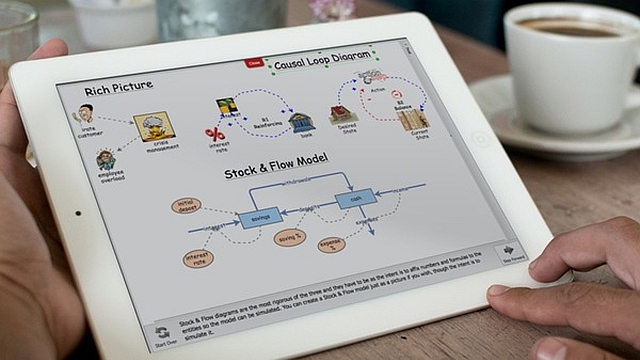
Teams aren’t as innovative when they collaborate remotely
Originally posted on The Horizons Tracker.
Teams working from different locations are less likely to come up with groundbreaking ideas compared to those working together in the same place, according to a study1 by the universities of Oxford and Pittsburgh.
The main finding is that although remote collaboration can offer new and creative scientific thoughts by tapping into a global pool of knowledge, it’s harder for these teams to work together effectively and achieve breakthroughs.
“The computer revolution and the rise of the Internet has connected talent from all around the world yet, rather than accelerating as many predicted, studies have shown that breakthrough innovation is in decline,” the researchers explain.
“Our paper provides an explanation for why this happens: while remote collaboration via the internet can bring together diverse pools of talent, it also makes it harder to fuse their ideas.”
Supercharging innovation
“Today, there is much talk about Artificial Intelligence supercharging innovation,” they continue. “Yet many predicted the same with the advent of the PC and the Internet. This should serve as a reminder there is unlikely to be a pure technological solution to our innovation problems.”
The team examined over 20 million research papers from 1960 to 2020, involving 22.5 million scientists across 3,562 cities. They also studied four million patents filed between 1976 and 2020, with 2.7 million inventors in 87,937 cities.
During this period, they found:
- The average distance between team members for papers increased from 100 kilometers to nearly 1,000 kilometers, and for patents, from 250 kilometers to 750 kilometers.
- The proportion of very long-distance collaborations (over 2,500 kilometers, like from Brazil to Liberia) rose significantly from 2% to 15% for papers and from 3% to 9% for patents.
- Despite these changes, researchers in remote teams were consistently less likely to make groundbreaking discoveries compared to their onsite counterparts.
- Remote teams were also less likely to engage in conceptual tasks crucial for breakthrough research, like conceiving research ideas or writing papers. However, they were more likely to contribute to technical tasks such as conducting experiments and analyzing data.
The team suggests that their findings have important policy implications. The widespread shift to remote work post-pandemic could lead to smaller and more gradual improvements in scientific research but might pose challenges for achieving breakthroughs. Hence, they emphasize that while investing in digital infrastructure is essential, it should not overshadow the importance of investing in physical infrastructure to reduce travel costs and enhance housing affordability.
“True innovation often has a hometown,” the researchers conclude. “This is because geographical proximity breaks hierarchy, enabling flat team structures and intensive communication essential for conceiving groundbreaking ideas.
“It is easier, for example, for a graduate student to discuss informally ideas with a senior professor in a hallway than through email. Even with digital advancements, online meetings cannot fully replace the unique value of face-to-face interactions in fueling innovation.”
Article source: Teams Aren’t As Innovative When They Collaborate Remotely.
Header image source: Priscilla Du Preez on Unsplash.
Reference:
- Lin, Y., Frey, C. B., & Wu, L. (2023). Remote collaboration fuses fewer breakthrough ideas. Nature, 623(7989), 987-991. ↩







One of the authors of this study (Frey) published a follow-up analysis of the data that shows the conclusion isn’t quite correct. The data go back to 1960, way before the advent of online collaboration tools. In this new study, they found that there was an uptick in innovation for remote teams beginning about 2010, even becoming more positive than co-located collaboration.
See: https://drive.google.com/file/d/1vLk_GrG_b7XxKoOCZEfPyGqu6AO0zSu3/view
Thank you Dennis for your comment, but this isn’t a case of a follow-up analysis producing the different result that you’ve put forward. Indeed, in a column on 6 May 2022, the co-authors of the paper you attach – Giorgio Presidente and Carl Benedikt Frey – announced that their research had identified the post-2010 reversal. But then, 18 months later on 29 November 2023, Oxford issues a media release announcing the Yiling Lin, Carl Benedikt Frey, and Lingfei Wu paper that is the focus of Adi Gaskell’s article here. This media release and paper make absolutely no mention of the already previously announced and reported post-2010 reversal. I don’t know for sure why this has happened, but what it looks to me to be, and after 9 years of this what I immediately suspected when I read your comment, is the perpetual problem of hype in research publishing and reporting.
There have also been a few papers recently, including this from Harvard – https://pubsonline.informs.org/doi/abs/10.1287/mnsc.2022.03555, that have confirmed the general notion of the Allen Curve, with the importance of physical proximity enduring even in our age of virtual working.